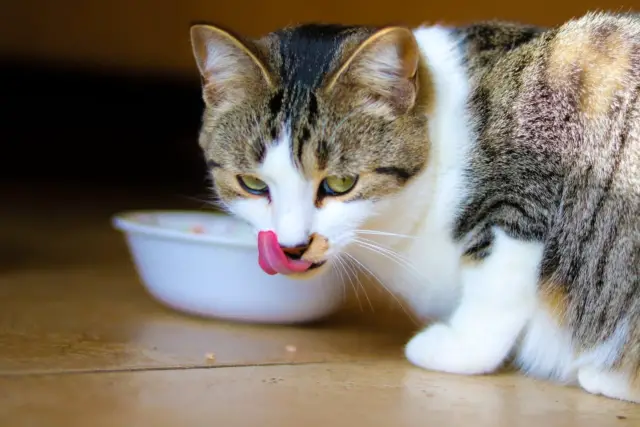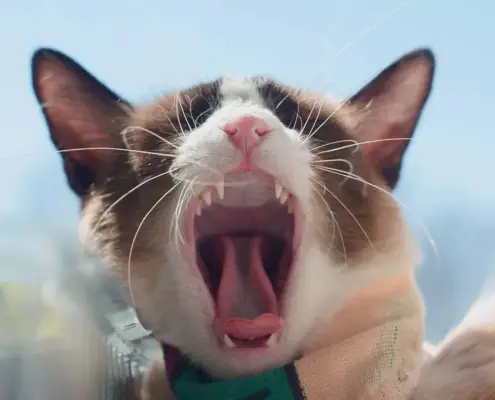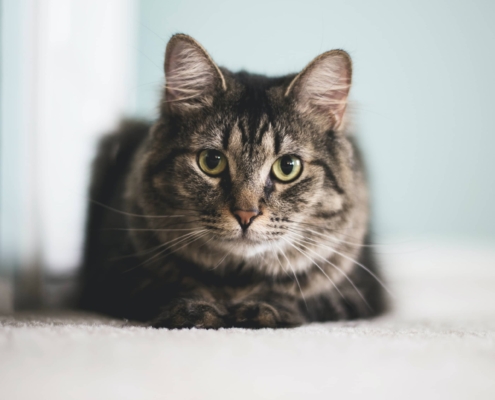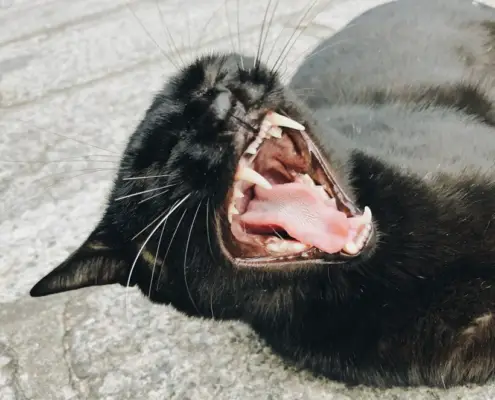
Cats are beloved pets that bring joy and companionship to millions of households around the world. As responsible pet owners, it is our duty to ensure that our furry friends receive the proper care and nutrition they need to live a healthy and fulfilled life. One crucial aspect of cat care is ensuring they receive adequate vitamins in their diet. Cat vitamins play a vital role in maintaining optimal health and well-being for our feline companions.
Vitamins are essential organic compounds that are required in small amounts for various physiological functions in the body. They are crucial for the proper functioning and maintenance of vital organs, such as the heart, liver, and kidneys. While cats can synthesize some vitamins on their own, they still rely on external sources to meet their nutritional needs. This is where cat vitamins come into play.
Common nutrient deficiencies in cats
Just like humans, cats can suffer from nutrient deficiencies if their diet lacks essential vitamins. Some common nutrient deficiencies in cats include vitamin A, vitamin B12, vitamin D, and vitamin E deficiencies. These deficiencies can lead to a range of health problems, such as poor immune function, skin issues, impaired vision, and muscle weakness. It is essential to address these deficiencies by supplementing their diet with appropriate cat vitamins.
How cat vitamins can improve overall health
Cat vitamins can have a significant impact on a cat’s overall health and well-being. They can help support a strong immune system, improve digestion, promote healthy skin and coat, and enhance bone and joint health. Additionally, cat vitamins can contribute to a cat’s energy levels, vitality, and mental clarity. By providing your cat with the proper vitamins, you can ensure they have the nutritional edge they need to thrive and live a long and happy life.
Choosing the right cat vitamins for your pet
When it comes to choosing the right cat vitamins for your pet, it is crucial to consider their specific needs and dietary requirements. Consult with your veterinarian to determine which vitamins are necessary based on your cat’s age, breed, and overall health. It is important to select high-quality cat vitamins that are specifically formulated for feline use. Look for reputable brands that use natural ingredients and have undergone rigorous testing to ensure safety and efficacy.
The role of vitamins in a cat’s diet
Vitamins play a crucial role in a cat’s diet, as they are involved in numerous physiological processes. For example, vitamin A is essential for vision, immune function, and healthy skin and coat. Vitamin B complex vitamins are necessary for energy production, brain function, and healthy metabolism. Vitamin D is crucial for the absorption of calcium and phosphorus, which are essential for strong bones and teeth. Vitamin E is a powerful antioxidant that helps protect cells from damage and supports a healthy immune system. By providing your cat with a balanced diet that includes these essential vitamins, you can help ensure their overall health and well-being.
Understanding the different types of cat vitamins
There are different types of cat vitamins available on the market, each serving a specific purpose. Some common types include multivitamins, omega-3 fatty acids, probiotics, and joint supplements. Multivitamins are designed to provide a comprehensive blend of essential vitamins and minerals to support overall health. Omega-3 fatty acids are beneficial for promoting a healthy coat, reducing inflammation, and supporting brain function. Probiotics are essential for maintaining a healthy gut microbiome and aiding in digestion. Joint supplements can help support joint health and mobility, particularly in older cats or those with arthritis. Understanding the different types of cat vitamins can help you choose the most appropriate supplements for your pet’s specific needs.
Tips for introducing cat vitamins into your pet’s routine
Introducing cat vitamins into your pet’s routine can sometimes be a challenge, especially if they are not accustomed to taking supplements. Here are some tips to make the process easier:
- Start slow: Begin by introducing a small amount of the vitamin supplement and gradually increase the dosage over time.
- Mix with food: Most cat vitamins can be easily mixed with your cat’s regular food. This ensures they consume the supplement without any resistance.
- Hide in treats: If your cat is particularly finicky, you can hide the vitamin supplement in their favorite treats. This makes it more enticing for them to consume.
- Be consistent: Consistency is key when it comes to giving your cat vitamins. Establish a regular routine and stick to it to ensure they receive their daily dose.
By following these tips, you can make the process of introducing cat vitamins into your pet’s routine a seamless and stress-free experience.
Recommended cat vitamins for specific health concerns
There are specific cat vitamins that are recommended for addressing certain health concerns in felines. For example, if your cat has dry, flaky skin, a vitamin E supplement may help improve their coat and skin health. If your cat suffers from joint pain or arthritis, a joint supplement containing glucosamine and chondroitin can provide relief and improve mobility. Always consult with your veterinarian before starting any new supplements to ensure they are appropriate for your cat’s specific condition.
FAQs about cat vitamins
- Are cat vitamins necessary if my cat is on a balanced diet?
Yes, even if your cat is on a balanced diet, it is still important to supplement their diet with vitamins. This ensures they receive optimal nutrition and helps prevent any potential nutrient deficiencies.
- Can I give my cat human vitamins?
No, it is not recommended to give your cat human vitamins. Cats have different nutritional requirements, and some human vitamins can be toxic to cats. Always choose cat-specific vitamins that are formulated for feline use.
- How do I know if my cat needs vitamins?
If you are unsure whether your cat needs vitamins, consult with your veterinarian. They can assess your cat’s overall health and determine if any specific deficiencies or health concerns need to be addressed with vitamin supplementation.
Conclusion
Cat vitamins are an essential part of a cat’s diet and play a crucial role in maintaining their overall health and well-being. By providing your cat with the necessary vitamins, you can ensure they have the nutritional edge they need to thrive and live a purrfect life. Remember to consult with your veterinarian to determine the most appropriate cat vitamins for your pet’s specific needs. With proper nutrition and care, your feline companion can enjoy a long, healthy, and happy life.
If you enjoyed my article, I would appreciate you sharing it with your network.

Sima Ndlebe
Sima writes for CatBuzz. He is interested in Cats, Health and Fitness, and Entrepreneurship.
Published: 13 October 2023
Related Articles
Disclaimer
The content found on CatBuzz.org is presented on an "as is" basis and is intended for general consumer information and education purposes only. Any utilization of this information is voluntary and solely at the user's own risk.
None of the articles or content should be regarded as, or used in place of, veterinary medical advice, diagnosis, or treatment. The information provided on the website is purely for educational and informational intentions and should not be considered a substitute for professional guidance from a veterinarian or other qualified expert. The articles are designed to inform consumers about veterinary healthcare and medical matters that may impact their cat's daily life. It should be noted that this website and its services do not constitute the practice of any form of veterinary medical advice, diagnosis, or treatment. CatBuzz.org explicitly disclaims any liability for any direct or indirect damages or losses that may arise from the use of or reliance on the information contained within the content.
Consumers must consult a veterinarian, veterinary specialist, or another qualified veterinary healthcare provider when seeking advice regarding their cat's health or medical conditions. It is important not to ignore, avoid, or postpone seeking medical advice from a veterinarian or other qualified veterinary healthcare provider solely based on information obtained from this website. If you believe that your cat may be experiencing a medical issue or condition, it is imperative to promptly contact a qualified veterinary healthcare professional.




